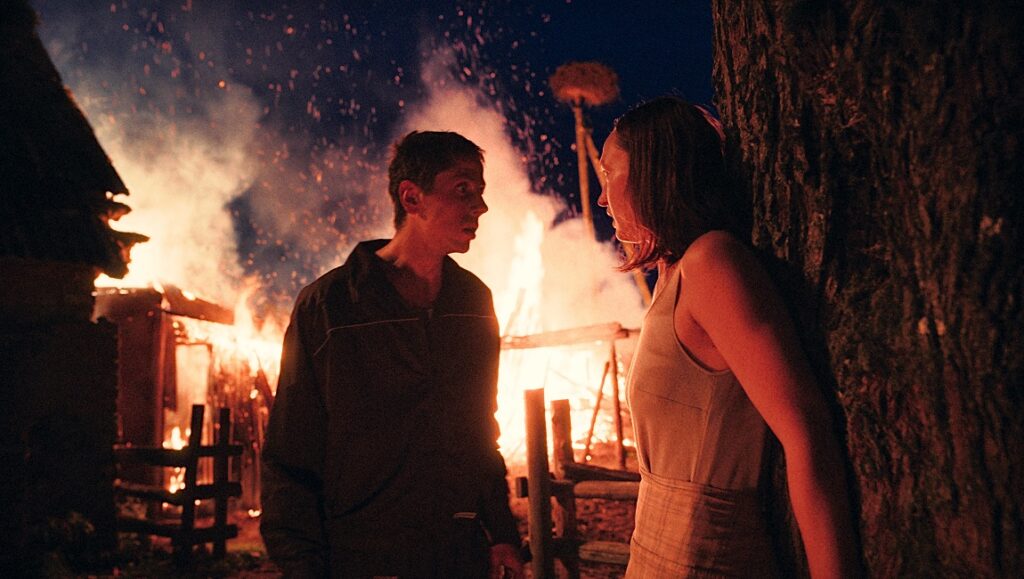Squeal is an occasionally striking study of the fairy tales men tell themselves, but it too often feels floundering and under-cooked to be regarded as a success.
A traditional quality that behooves most fairy tales is their ability to suspend judgement and disbelief, sometimes to logical extremes, in order to recall from this suspension a moral or fable whose instruction might otherwise lack the requisite narrative oomph. Consider the length of poor Rapunzel’s hair as cautionary exemplar for the inevitable loss of childhood innocence, or the blunder of ignorant greed in the story of geese and golden eggs. An element of fantasy threads through the tale (this is, of course, an analytic statement) which, crucially, embellishes it with heightened — possibly cosmic — awareness of human folly and foible. And many of these stories, from then to now, entertain despite or due to their graphic designs: Aesop’s fables, while now synonymous with the fairy tale, reflect poorly on the latter’s macabre origins.
In a way, the memorable curios that is Aik Karapetian’s Squeal embodies the modern fairy tale with great fidelity to both its historical and narratological contexts. Squeal is nominally in Latvian and English, but takes place in the great middle of nowhere in Eastern Europe. It features a (possibly talking) pig, a foreigner named Samuel (Kevin Janssens) in the region searching for his father, and some local farmers whose intentions with him are ambivalent, if always alarming. And it gets dark incredibly quickly in opposition to the cheerful register retained by the film’s omniscient narrator (Uldis Verners Brūns) throughout; distracted, Samuel runs over the pig, nearly turning it into roadkill, but when he safely returns it to the owner — a kindly woman named Kirke (Laura Siliņa) — he soon learns that a swift death at the wheel would be more merciful and less perplexing than the fate that awaits them.
Without spoiling much of the film’s squeamish premise, one could invite comparisons to the bestial overtones of not just the Brothers Grimm, but also a more recent and equally striking porcine parable in Michael Sarnoski’s award-winning Pig; the latter saw Nicolas Cage devour much of his usually bombastic persona onscreen as he sets out to find and avenge his missing truffle pig. Much of Squeal banks on a similar incongruence between the uncanny and the familiar, raising at its core many prescient if personal questions about the position of man in relation to the fairy tales he tells. In Samuel’s case, his subsequent captivity at the hands of multiple characters promises more engagement than your conventional witch horror remake because it situates the viewer in that same clueless headspace, having to navigate a world of strange cruelty and unexpected kindness all at once. It’s a pity, then, that Squeal never quite develops these ideas beyond cursory exposition (or, at best, a vague romanticization of animal life over human living), delivering its twists and turns in a manner befitting of much shorter genre fare. The mysterious European setting helps engender a certain cultural alienation, although one can’t quite help but feel that Karapetian himself was grasping for straws here, floundering about in the hay with talking-points about servitude and human nature before occasionally striking gold. Squeal, inevitably, under-delivers what could’ve been a truly delicious recipe for the times, but should you sample it nonetheless, with tempered expectation? Sure, why not!


Comments are closed.